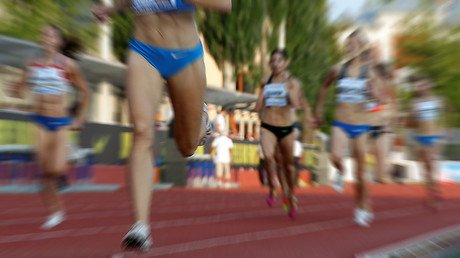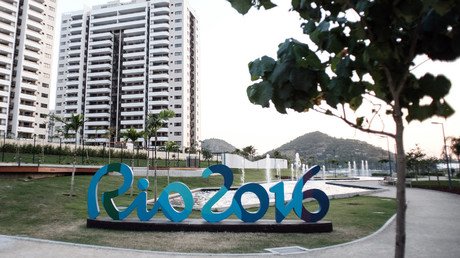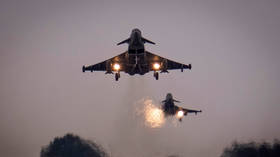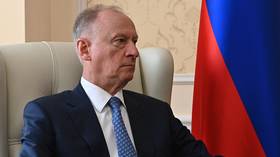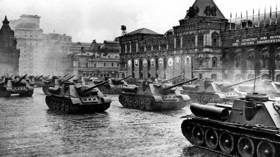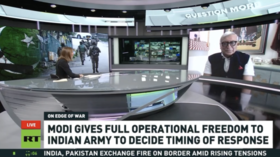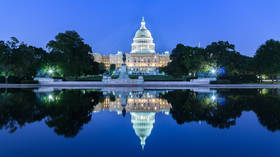IOC not to blame for WADA’s lack of action, ignorance of previous doping reports – Olympic president
The International Olympic Committee (IOC) had nothing to do with the timing and reasons for the publication of the World Anti-Doping Agency’s McLaren report, which led to over a hundred Russian athletes being banned from the Olympics, IOC president Thomas Bach said.
When asked if the IOC is responsible for the lack of clarity about the Russia’s participation ahead of the upcoming games, Bach’s reply was: “No, and it is for objective reasons."
He explained that his organization was not responsible for the timing of Richard McLaren’s report, claiming that a large scale doping program, which involved security services, was carried out by Russia.
“The IOC report isn’t responsible for the fact that the information, which was presented to WADA several years ago, did not lead to any action,” he said, adding that the accreditation of anti-doping laboratories also not among the IOC’s responsibilities.
“Therefore, the IOC can’t be responsible for the timing and reason of what we we’re facing. Because we’re facing this with just a few days before the Olympic games," Bach stressed.
Earlier on Saturday, the IOC announced that a special three-member commission would have the final say in determining which individual Russian athletes would be eligible for the Rio Olympics. The panel will look into the case of each athlete already cleared to compete.
Bach said that the commission on the Russian team’s participation, headed by Dr. Ugur Erdener, has already begun its work.
Juan Antonio Samaranch, son of the seventh president of the IOC, and IOC Athletes’ Commission Chair Claudia Bokel were also included in the commission.
Press conference of the IOC President Thomas Bach https://t.co/DFOAobAodX
— IOC MEDIA (@iocmedia) July 31, 2016
According to Bach, the athletes on the Russian Olympic team have to pass a three admission requirements to make it to the Olympic Games in Brazil.
The first step is being cleared by their individual sport’s international federation, the second is that they have never violated anti-doping rules, while the third, and final, hurdle, is that they must be approved by the three-member IOC commission, whose decision is to be based on the opinion of independent experts and the Court of Arbitration for Sport (CAS), he explained.
“Now is the time to resolve this situation. Before the Games start, and then after the Olympic Games, there will be more time to carefully analyze the whole situation, and I would advise everybody… to study this situation with a certain distance and not under this moment of very emotional and passionate debates,” Bach stressed.
The Olympic Games in the Brazilian city of Rio de Janeiro are scheduled to take place between August 5 and 21.
Bach was put under severe pressure during the media-conference on Sunday, with many critics still dissatisfied with the IOC’s decision not to impose a blanket ban on Team Russia.
According to the Olympic president, his organization has done everything possible to protect clean athletes.
“Imagine the situation if we would not have taken the decision [to admit Russian team]... I trust the people that they will realize the difficulties we are in, they will realize that we did our best to address this situation in a way which allows protecting all clean athletes all over the world,” he said.
Bach expressed hope that the scandal surrounding Team Russia won’t affect the Rio Games in a negative way.
He was also asked if he had had any contact with Russian government officials after the publication of the McLaren report.
“No, I haven’t been talking to any Russian government official since the publication of the McLaren report and not even in the... days or weeks preceding,” the IOC president answered.
Bach was right to criticize WADA, as the whole Russian scandal is largely the fault of the anti-doping body itself, Ellis Cashmore, sports writer and sociology professor at Britain’s Aston University, told RT.
“Everybody is turning on WADA at the moment. WADA really seem to be the fall guy. Not that I wouldn’t join the chorus because, quite frankly, this is the organization that showed itself to be utterly incompetent. In a sense, WADA has gotten us into this mess because the Russian athletes, who are now being banned, many of them, got through clean dope tests through WADA accredited laboratories,” he said.
Cashmore stressed that doping exists in other countries, but Russia’s Olympians were chosen as “scapegoats.”
“I think that the political machinations are simple and that’s – while all of the world’s eyes are on Russia as the villain of the piece, they’re distracted from the rest [of the Olympic participants,]” he explained.
“Anybody who’s studied sport knows that doping is going on in every country in the world. But, of course, for those who don’t study sports… they’ve been misled into thinking that it’s only going on Russia, but it’s going on everywhere,” the expert added.
Marius Vizer, the head of the International Judo Federation, also sees a political plot behind the Russian doping scandal. The pressure is now being exerted on Russian athletes because some actors in the international arena want to destroy “one of the last bridges” that connects Russia and the international community, which is sport, Vizer told RT.
Assigning a three-member commission to rule on which Russian athletes will compete in Rio “is a very late intervention by IOC, having only last week decided that they will delegate the responsibility to the international federations,” Michelle Verrorken, founding director of the UK’s Sporting Integrity Ltd., told RT.
It looks as if “the IOC is grabbing back the authority of who actually takes part [in the Games],” she added.
According to Verrorken, the ruling from the Olympic bosses puts the Russian athletes who were sure to compete after their federations cleared them in a difficult situation.
“And I really do feel for the athletes. This is absolutely dreadful by way of preparation – mental and even their physical preparations. How can they actually make themselves focused on these Games?” she said.
According to the expert, the Russian team has been caught in “a power play to decide, who really is in charge of the drug free sports or even the Olympic Games” between the international federations, WADA, and the IOC.
The events surrounding Russia’s participation in the Rio Games indicate that “we haven’t achieved a proper accountable well-governed system” for anti-doping that will be trusted any athletes, Verrorken stressed.
